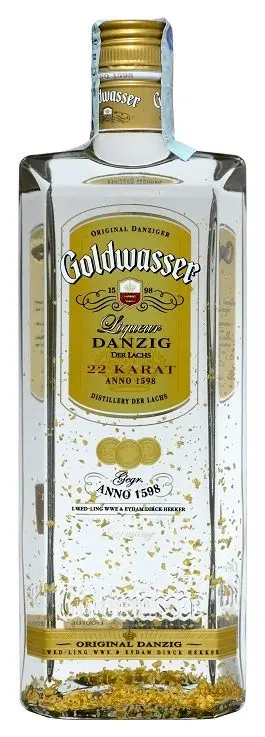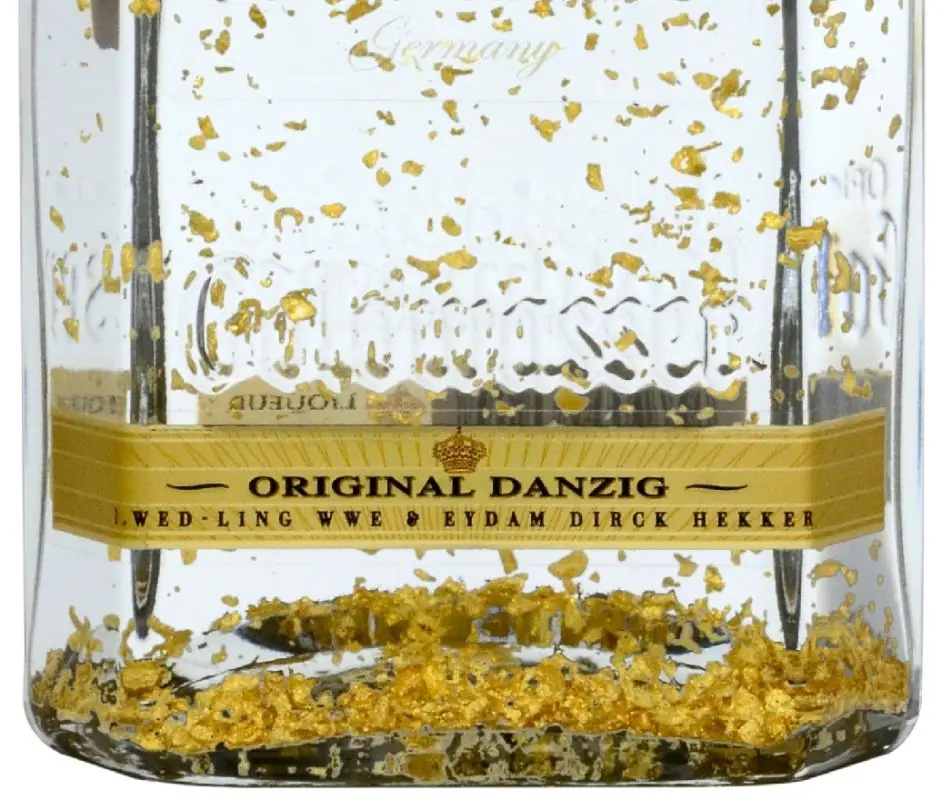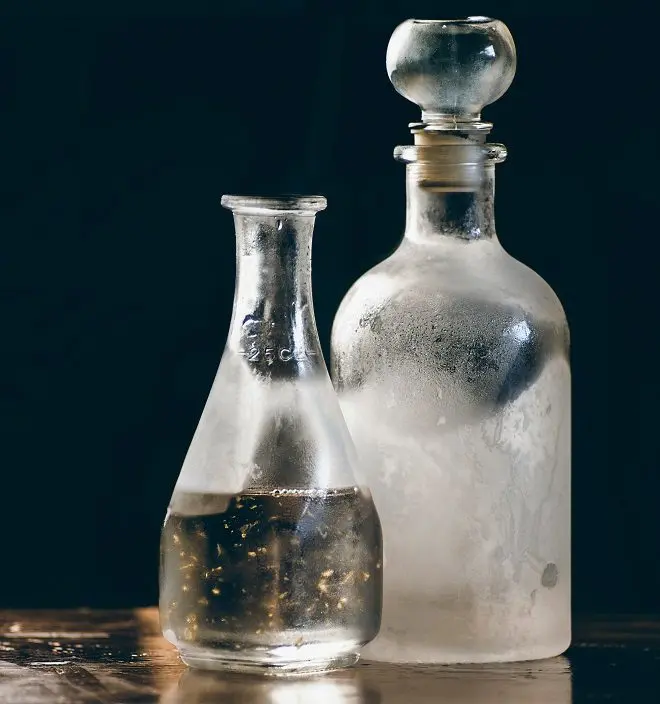Goldwasser (translated from German as “golden water”) or Danziger Goldwasser (“Gdansk golden water”) is a herbal liquor with a strength of 40% by volume, invented in 1595 by the Dutchman Ambrosius Vermoolen, who fled to Prussia from religious persecution of Protestants. The young man brought from the Netherlands not only all his property, but also many recipes for alcoholic beverages unknown in this part of Europe, and in 1598 he already opened his own winery Der Lachs (“salmon”). The Mennonites, to which Mr. Vermoolen belonged, are known for their pacifism. These Protestants never participate in hostilities, and if the government of the country begins to force them, they emigrate en masse.
The composition of the Goldwasser liqueur includes more than 20 herbs and oriental spices: juniper, cloves, cinnamon, lavender, anise, cardamom, turmeric, coriander, thyme, lemon and orange peel, celery seeds. A distinctive feature of the drink, however, is not in an exquisite bouquet, but in flakes of 22-23 carat gold, because of which alcohol is often called “vodka with gold”, especially since its strength is 40 degrees.
Particles of the precious metal immediately transfer the product to the category of elite alcohol. Throughout the history of the brand, its fans have been such crowned persons as Peter I, Louis XIV, Catherine the Great. Liquor “Goldwasser” is mentioned in the epic “Pan Tadeusz” by the Polish writer Adam Mickiewicz.

Appearance legend
Another Polish writer, Jerzy Samp, cites a legend according to which the inhabitants of Gdansk constantly threw gold coins into the Neptune Fountain. So much money accumulated that the noble metal purified the water, and it turned into vodka. Then Neptune came to life and broke the coins with his trident into small particles. This is how “water with golden flakes” appeared – goldwasser.
The German version of the legend is more tragic. She claims that once the ships of wealthy merchants entered the Gdansk port, the ships were literally bursting with gold and goods. The ruler of the city invited merchants to visit, they arranged a feast, and filled the Neptune fountain with wine for the poor. The tipsy rich wanted to have some fun and forced the poor to catch gold coins from the fountain, and those who did not succeed were beheaded.
Seeing this, Neptune became angry and broke the coins into gold dust with his trident. So the fountain was filled with wine with golden fractions. The owner of the Der Lachs winery did not lose his head, quickly filled the barrel with an unusual drink and hid it in the basement.
After some time, a plague came to the city, people were dying by the hundreds, nothing could heal them. The governor also fell ill. Then the winemaker remembered the miraculous wine and made the sick gentleman drink it, after which he was healed. So people learned that gold turns ordinary wine into medicine.

History
In the XNUMXth century, thanks to the development of distillation technology, the volume of production of alcoholic herbal tinctures also increased significantly. Occasionally, gold or silver flakes were added to them – not so much for the sake of luxury, but to enhance the medicinal properties of the plants that make up the drink.
Alchemical medicine believed that noble metals had miraculous properties, so they were added not only to tinctures, but also to other liquids: vegetable oil, vinegar, ordinary water.
Perhaps the inspiration for such drinks was the medieval technique of gilding, in which the master dipped a brush in alcohol, picked up a sheet of gold leaf and applied it to the surface. With repeated repetition of this procedure, a certain amount of gold fractions invariably settled in alcohol.
In 1945, the factory that produced the liquor was destroyed, and the brand’s owners moved to Germany. As a result, one trademark ended up in two countries at once. During the Polish People’s Republic, the rights to the Goldwasser trademark belonged to the state-owned company Polmos, and production was moved to Poznań.
In 2008, a new label design and bottle shape was developed, and in 2009, the production of Golden Water in Poland ceased.
Today, the herbal liqueur with gold is produced only in Germany under the name Danziger Goldwasser, and it can also be ordered at the Goldwasser restaurant in Gdansk. The original recipe is kept by Graf von Hardenberg, the owner of a German winery.
Similar brands
In Schwabach, Germany, Schwabacher Goldwasser is produced – “Schwabach golden water”. This is also a herbal liqueur with particles of gold, but a completely different brand.
How to drink Goldwasser
Like all herbal liqueurs, Goldwasser can be served as an aperitif or as a digestif. Before serving, the liquor is shaken to raise the gold flakes from the bottom.
Goldwasser is drunk cold in its pure form from transparent glasses, enjoying the play of gold particles in the light.










